Q&A with Adriana Manago
Assistant Professor of Psychology at UC Santa Cruz
Interviewed by: Darío León, Research and Community Coordinator
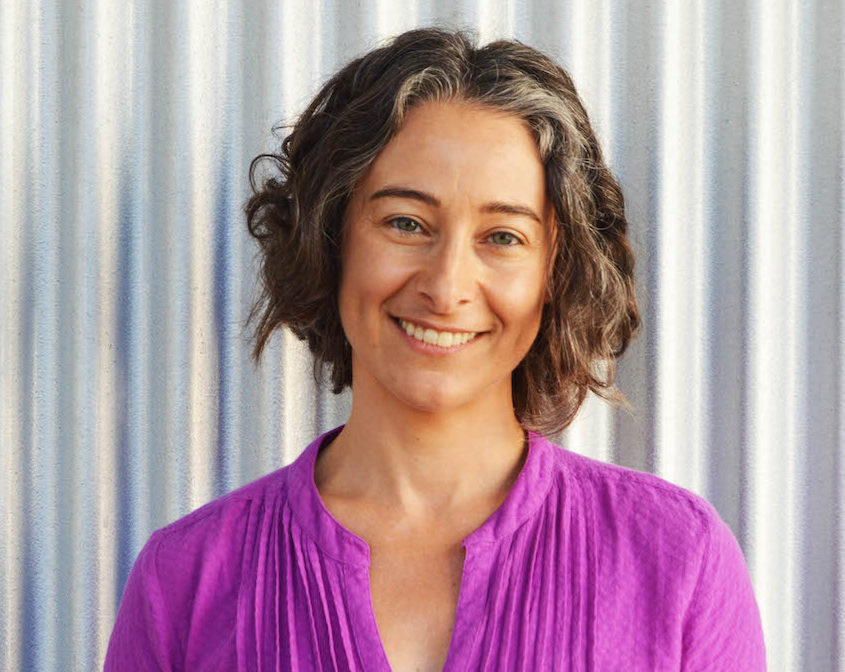
Adriana Manago, assistant professor of psychology at UC Santa Cruz, is a cultural developmental psychologist interested in the proliferation of communication technologies, culture change, and social development during adolescence and the transition to adulthood. Adriana is a faculty affiliate of the Research Center for the Americas and recently joined the executive board of the Institute for Social Transformation.
What is the focus of your current research?
Adriana: In my Culture and Technology lab we examine how adolescents use social media in their identity development and what the implications might be for cultural psychological change. The idea is that by virtue of their identity development and figuring out who they are and their purpose in life, adolescents are negotiating new conditions and they’re mediating the impact of these new conditions on existing expectations. For example, when we focus on immigrant youth, we see that they are often cultural brokers, they’re the translators in the family. I’m trying to extend that idea into the realm of social media. Social media provides new opportunities for communication. As adolescents are using these new technologies, they may be transforming values and beliefs and changing culture.
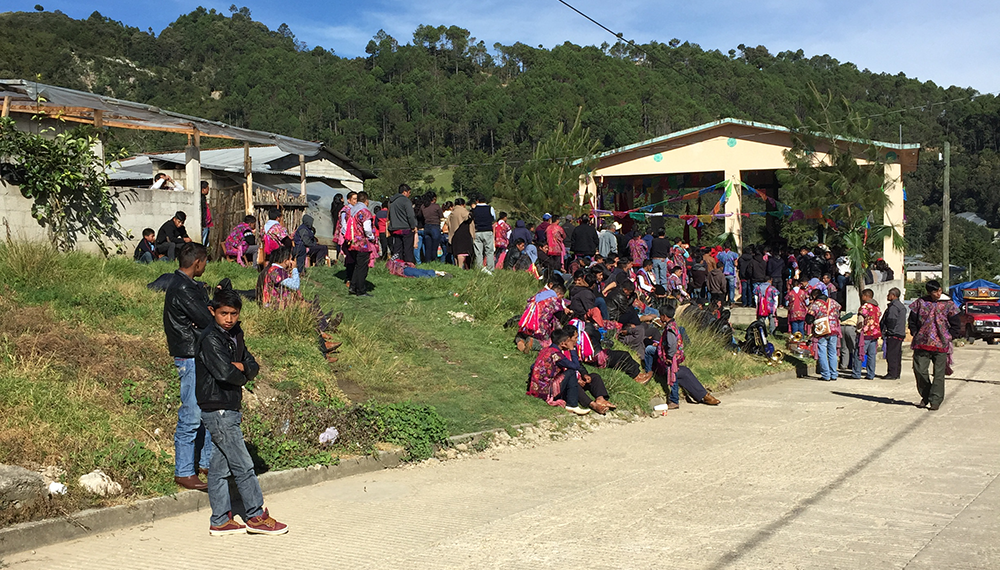
Can you tell us about your research on the indigenous Maya community in southern Mexico?
Adriana: I’ve been studying social change at a field site in an indigenous Mayan community called Zinacantán (Chiapas, México). I started studying social change there as part of my dissertation research when I was at UCLA. My dissertation was about the impacts of a new high school and how it was changing cultural pathways of development, especially for gender and sexuality. Gender and sexuality is often a focus of my research because it is sensitive to change and it’s so central to the adolescent experience. Some adolescents were going to a new high school and some adolescents had discontinued their education after elementary school. Adolescents who were going to high school had more individualistic ideologies around gender and sexuality whereas their grandparents and parents had more collectivistic values and ideologies around gender and sexuality. Traditionally, Zinacantán women learn how to weave and make tortillas whereas the men learn how to cultivate corn. The gender roles are subscribed at birth, they’re complimentary, they’re interdependent. Sexuality is mediated by the families and partnering usually is the coming together of two families. Now with the high school, adolescents are individually negotiating those romantic relationships outside of parental management and security of the family. I continue to follow some of the adolescents from this study into emerging adulthood and have been studying how their use of social media including Facebook and WhatsApp is influencing their development.
How are communication technologies shaping human development?
Adriana: I’m interested in gender and social media use here in the United States—I think social media is a tool that can be used to reinforce and challenge dominant gender ideologies. The Institute for Social Transformation is helping to fund this project. There are some findings in the research literature that boys and girls use social media in different ways. Girls are more likely to use social media to do social comparison and get feedback on their appearance. Boys are more likely to joke around and compete with their friends through social media gaming. We plan to collect survey data with several different high schools in Watsonville and Santa Cruz so that we get some cultural variability in gender ideologies and test whether ideologies are more predictive of gendered social media use than gender per se. We are also interested in seeing what the implications of gender ideologies at school might be for LGBTQ youth. We are using a somewhat new methodology, called a social media tour, that tries to get at the everyday lived experiences of LGBTQ adolescents and their meaning making on social media. Eventually the dream study is to connect LGBTQ youth experiences on social media with the broader gender ideologies that are happening in their schools. The research literature sees social media as a completely separate space from schools. We’re trying to make that bridge and show that they intersect.
Are UCSC students involved in your research?
Adriana: Yes, I have six undergraduates in the lab. Two students are native Spanish speakers and they’re helping me code and analyze the interview data from Mexico. Undergraduates are also working with a graduate student on the LGBTQ interviews.
So what led you to do this type of work? What are your goals for your research?
Adriana: I’m Italian. I’m a daughter of immigrant parents who are from the south of Italy. They were very poor when they came to the United States, and also very traditional in their gender roles. It changed quite a bit the longer they were here in the United States. I think I had my feminist awakening in college, in undergrad. It really started this burning question as to why do we see this gender hierarchy and in so many different cultures. It feels like it’s almost “natural” and “inevitable.” I think that really just sparked my curiosity, a sense of justice, a sense of fairness. Like, this isn’t fair! Why is this occurring?
I first began to look for answers in evolutionary psychology but I didn’t find that very satisfying because it doesn’t really offer opportunities for change. I was originally a journalism major in undergrad and I went back to school to study psychology. I found culturally oriented theories and found them really compelling because we could study culture and understand how cultures also change and that gives us some sort of hope for the future. My big picture goals around my research are to try to shed light on how adolescents can be important allies and can be the harbingers of new ways of thinking.
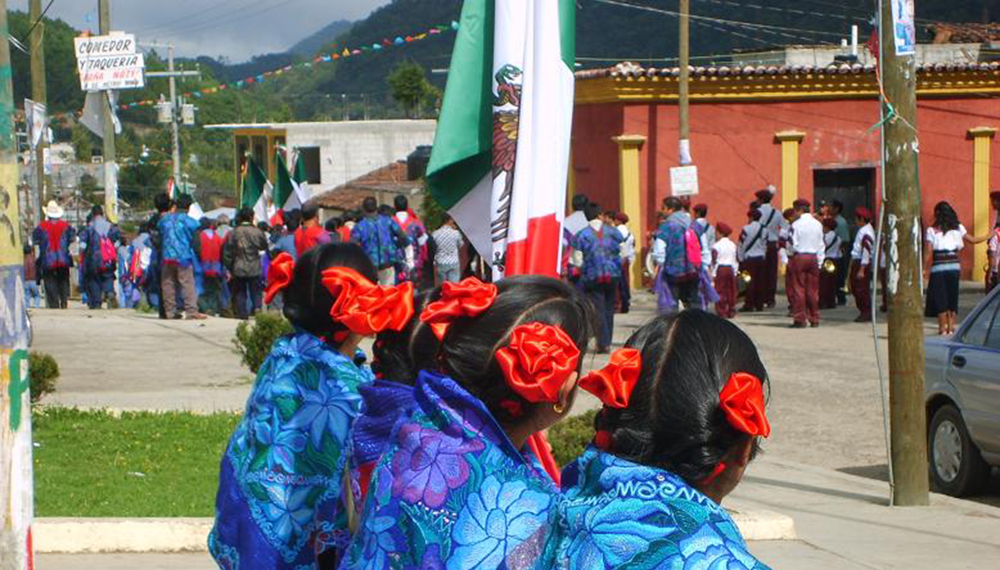
Was there anything that surprised you in this area of research?
Adriana: As much as I’m focused on cultural change, I’m also seeing lots of cultural continuity in the tenacity of patriarchy as well. To give an example, I was looking at how adolescents who are going to school for the first time were negotiating these new kinds of roles with their families because, traditionally in Zinacantán, a woman couldn’t go outside of home by herself. The patriarchal bargain sort of hinges upon women’s sexual purity and the family’s control over female sexuality. Women who were going to college were taking on new responsibilities to maintain their purity because in the past it had been managed by families. When they were going to college, girls were changing the culture in some ways but they were also reinforcing that idea that women needed to be sexually pure and they were taking on increased responsibility. In one interview, a woman said that she made her father proud. People would ask her father, “Why did you let her go to school? How is she doing this?” And her father would say, “well she’s a smart, strong woman. She’s able to maintain her purity on her own. I trust her, she has high moral standards.” They weren’t completely changing or disregarding their cultural norms but expanding on their familistic values to include new kinds of educational roles. They realized that education would not only benefit her but the family as a whole. As I do more and more of this work, I have more of an understanding how there’s always cultural change and continuity working together. It’s not just a linear theory of culture moving away from collectivism towards individualism.
How has your research focus changed with the COVID-19 pandemic?
Adriana: We put together a new project proposal that is looking at whether conservative gender ideologies might increase during COVID. The uncertainty threat model of political conservatism is the idea that people become more conservative under conditions of threats. They look to traditional values and beliefs as a source of security, stability and predictability. We have pre-COVID data that I collected in high schools with adolescents in November. We plan to do another wave of data collection to see if their gender ideologies have become more conservative perhaps and then how that might be working through social media. Then we’re wondering how that might be impacting LGBTQ youth because unfortunately many LGBTQ youth may be at home and with families that are not very accepting.
How have you been involved within the Institute for Social Transformation?
Adriana: Last year, I received a Sprout Grant to fund some of my gender and social media research. I decided this year to be on the institute Executive Board. I’m learning and absorbing. There are so many brilliant people that are involved in the institute and there are a lot of people who are thinking big picture which is really wonderful for me. I define myself as a cultural developmental psychologist and I’m trying to connect the individual psychological variables to the broader cultural variables and social context.
Transformation is such a big theme and the focus on community partnerships is important. I’ve seen a lot of people do amazing work where it’s not just “drive by” research—what we call it in psychology, where you go and collect your data and you leave. The institute supports people who are interested in investing in the community and doing more participatory kinds of work. They see community members as collaborators instead of research subjects. This is the kind of research and the kinds of partnerships that are happening and thriving at the institute. These are people who are really interested in building community, going outside the ivory tower and being really innovative and thinking about new ways to think about transforming society.
Have you collaborated with any community organizations?
Adriana: We started to collaborate with Soquel High School and to partner with some schools in Watsonville. A lot of this work has been interrupted by COVID-19. We are also wanting to collaborate with the Safe Schools Project. This is a county program that works to include more education around LGBTQ issues. We’ve just started a partnership with them thinking about how some of our research can enhance education and identify the role of gender ideologies and maybe identify harassment and bullying.
What do you appreciate most about being part of the Santa Cruz County community?
Adriana: Seeing the hope and the optimism that people have. It’s really easy to feel helpless in terms of how difficult it is to create social transformation. I’ve been seeing people who are really just so committed, using multiple resources and taking advantage of the kinds of privilege that we have to be part of a university community. People are creating practical solutions and thinking about effective kinds of strategies for change. This is really inspiring for me because I think it’s easy to get lost in academia and sort of abstract, philosophical pondering. Not that I don’t think that that’s important too! I appreciate seeing that connection between theoretical, conceptual and philosophical ponderings and connecting that to the real world.


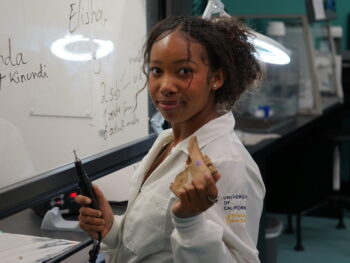
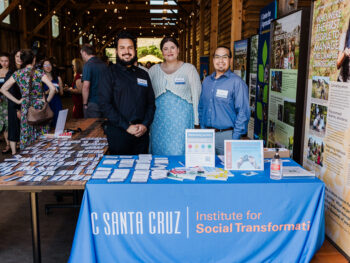
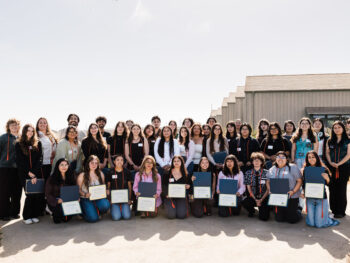
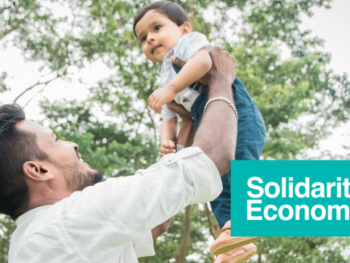
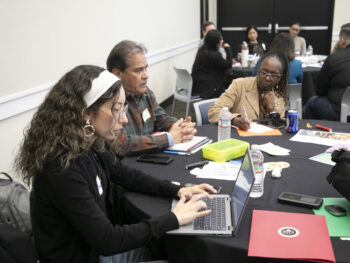
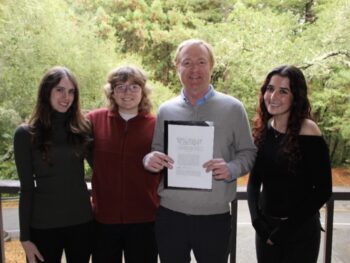
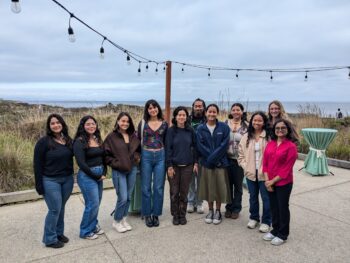
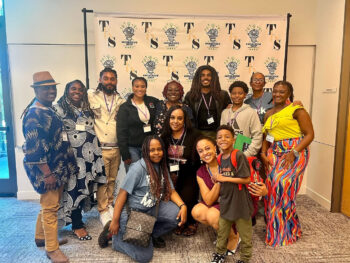
 Youth Organizing Groups Empower Diverse Young Leaders in California’s Central Valley
Youth Organizing Groups Empower Diverse Young Leaders in California’s Central Valley
